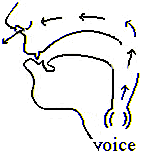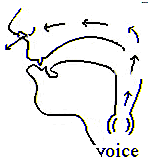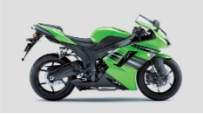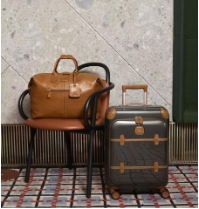Bài tập chuyên sâu Tiếng Anh 9 unit 4 Remembering the past có đáp án được soạn dưới dạng file word và PDF gồm 25 trang. Các bạn xem và tải về ở dưới.
UNIT 4. REMEMBERING THE PAST
I. VOCABULARY
| Stt | Word | Type | Pronunciation | Meaning |
| 1 | ancient | (adj) | ˈeɪnʃənt/ | cổ đại, lâu đời |
| E.g. People have lived in this valley since ancient times. Người dân đã sống ở thung lũng này từ thời xa xưa | ||||
| 2 | anniversary | (n) | /ˌænɪˈvɜːsəri/ | ngày kỉ niệm, lễ kỉ niệm |
| E.g. They held celebrations to mark the anniversary of Mozart’s death. Họ tổ chức lễ kỷ niệm để đánh dấu ngày mất của Mozart. | ||||
| 3 | act out | (phr.v) | /ækt aʊt/ | đóng vai, diễn |
| E.g. The children started to act out the whole incident. Những đứa trẻ bắt đầu diễn lại toàn bộ sự việc. | ||||
| 4 | barefoot | (adj/adv) | /ˈbeəfʊt/ | chân đất |
| E.g. We took off our shoes and socks and walked barefoot along the beach. Chúng tôi cởi giày và tất và đi chân trần dọc theo bãi biển. | ||||
| 5 | craft | (n) | /krɑːft/ | nghề thủ công |
| E.g. My mother can do traditional crafts like basket weaving. Mẹ củaa tớ có thể làm nghề thủ công truyền thống như là đan rổ. | ||||
| 6 | basic | (adj) | /ˈbeɪsɪk/ | cơ bản |
| E.g. You should leam basic life skills. Bạn nên học những kỹ năng sống cơ bản. | ||||
| 7 | behave | (v) | /bɪˈheɪv/ | đối xử, cư xử |
| E.g. She always behaves well when we come to visit. Cô ấy luôn luôn đối xử tốt khi chủng tôi đến thăm. | ||||
| 8 | castle | (n) | /ˈkɑːsl/ | lâu đài |
| E.g. He lives in a big castle. Anh ta sống trong một lâu đài lớn. | ||||
| 9 | communal | (adj) | /kəˈmjuːnl/ | của chung, thuộc cộng đồ |
| E.g. The gardens surrounding the building were communal. Những khu vườn xung quanh tòa nhà là của chung. | ||||
| 10 | complex | (n) | /ˈkɒmpleks/ | khu phức hợp, quần thể |
| E.g. They live in a complex. Họ sống trong một khu phức hợp. | ||||
| 11 | deep-rooted | (adj) | /ˌdiːp ˈruːtɪd/ | lâu đời, ăn sâu bén rễ |
| E.g. The custom of sending a greeting in a card had become a deep-rooted tradition. Phong tục gửi lời chào bằng thiệp đã trở thành một truyền thống lâu đời. | ||||
| 12 | eat out | (phr.v) | /i:t aʊt/ | ăn bên ngoài |
| E.g. We often eat out at the weekend. Chúng tôi thường đi ăn bên ngoài vào cuối tuần. | ||||
| 13 | entertain | (v) | /ˌentəˈteɪn/ | giải trí |
| E.g. Parents can relax while the kids entertain themselves in the outdoor playground. Cha mẹ có thể thư giãn trong khi bọn trẻ giải trí trong sân chơi ngoài trời. | ||||
| 14 | event | (n) | /ɪ’vent/ | sự kiện |
| E.g. This year’s Olympic Games will be the biggest ever sporting event. Thế vận hội Olympic năm nay sẽ là sự kiện thể thao lớn nhất từ trước đến nay. | ||||
| 15 | face to face | (adv) | /ˌfeɪs tə ˈfeɪs/ | trực tiếp, mặt đối mặt |
| E.g. We need to talk face to face. Chúng ta cần nói chuyện trực tiếp. | ||||
| 16 | facility | (n) | /fəˈsɪləti/ | – phương tiện, thiết bị
– điều kiện dễ dàng, điều kiện thuận lợi |
| E.g. All rooms have private facilities. Tất cả các phòng đều có tiện nghi riêng. | ||||
| 17 | fish and chips | (n) | /ˌfɪʃ ən ˈtʃɪps/ | món cá kèm khoai tây chiên |
| E.g. Fish and chips is traditional food in England. Món cá kèm khoai tây chiên là món ăn truyền thống ở Anh. | ||||
| 18 | found | (v) | /faʊnd/ | thành lập |
| E.g. He founded the company 20 years ago. Ông ta đã thành lập công ty cách đây 20 năm. | ||||
| 19 | generation | (n) | /ˌdʒenəˈreɪʃn/ | thế hệ |
| E.g. My generation has grown up with the internet. Thế hệ của tôi đã lớn lên cùng với internet. | ||||
| 20 | monument | (n) | /ˈmɒnjumənt | tượng đài |
| E.g. A monument to him was erected in St Paul’s Cathedral. Một tượng đài tưởng nhớ ông đã được dựng lên ở Nhà thờ St Paul. | ||||
| 21 | illiterate | (adj) | /ɪˈlɪtərət | thất học, dốt nát, mù chữ |
| E.g. A large percentage of local people here was illiterate. Phần lớn người dân địa phương ở đây mù chữ. | ||||
| 22 | loudspeaker | (n) | /ˌlaʊdˈspiːkə(r) | loa |
| E.g. She used her phone’s loudspeaker to let everyone listen. Cô sử dụng loa của điện thoại để mọi người cùng nghe thấy. | ||||
| 23 | observe | (v) | /əbˈzɜːv | quan sát, theo dõ |
| E.g. I want you to observe all the details. Tôi muốn bạn quan sát tất cả các chi tiết. | ||||
| 24 | occupied | (adj) | /ˈɒkjupaɪd/ | đầy, có người đang sử dụng |
| E.g. The bathroom was occupied, so I waited. Phòng tắm có người đang dùng nên tôi đợi. | ||||
| 25 | occupy | (v) | /ˈɒkjupaɪ/ | chiếm giữ, chiếm đóng |
| E.g. The bed seemed to occupy most of the room. Chiếc giường dường như chiếm phần lớn diện tích căn phòng | ||||
| 26 | pass on | (phr.v) | /pɑːs ɒn/ | truyền lại, kể lại |
| E.g. No one passed the news on to me. Không ai kể lại tin tức đó cho tôi cả. | ||||
| 27 | promote | (v) | /prəˈməʊt/ | thúc đẩy, quảng bá |
| E.g. The band has gone on tour to promote their new album. Ban nhạc đang đi lưu diễn để quảng bá cho album mới của h | ||||
| 28 | recognise | (v) | /ˈrekəɡnaɪz/ | công nhận, nhận ra |
| E.g. I recognised his voice immediately. Tôi nhận ra giọng nói của anh ấy ngay lập tức | ||||
| 29 | religious | (adj) | /rɪˈlɪdʒəs/ | (thuộc) tôn giáo |
| E.g. He’s deeply religious and goes to church twice a week. Anh ấy rất sùng đạo và đến nhà thờ hai lần một tuần. | ||||
| 30 | street vendor | (n) | /ˈstriːt ˈvendə(r)/ | người bán hàng r |
| E.g. He admitted purchasing illegal bootleg CDs from a street vendor. Anh ta thừa nhận đã mua đĩa CD lậu từ một người bán hàng rong. | ||||
| 31 | strict | (adj) | /strɪkt/ | nghiêm khắc, khắt khe, không khoan dung, không ngoại lệ |
| E.g. She’s on a very strict diet. Cô ấy đang trong chế độ ăn kiêng rất nghiêm ngặt. | ||||
| 32 | treat | (v) | /tri:t/ | cư xử, thiết đãi, điều trị |
| E.g. They treat their animals quite badly. Họ đối xử rất tệ với động vật. | ||||
| 33 | structure | (n) | /ˈstrʌktʃə(r)/ | cấu trúc |
| E.g. The overall structure of the book is divided into three parts. Cấu trúc tổng thể của cuốn sách được chia thành ba phần. | ||||
| 34 | takeaway | (n) | /ˈteɪkəweɪ/ | đồ ăn bán sẵn mang về |
| E.g. We were too tired to cook so we ordered takeaway. Chúng tôi quá mệt để nấu ăn nên đã gọi món mang về. | ||||
II. WORD FORMATION
| Words | Related words | Transcription | Meaning |
| behave (v)
đối xử, cư xử |
behaviour (n) | /bɪˈheɪvjə(r)/ | thái độ, cách cư xử, cách ăn ở |
| behavioural (adj) | /bɪˈheɪvjərəl/ | thuộc về cách cư xử | |
| entertain (v)
giải trí |
entertainer (n) | /ˌentəˈteɪnə(r)/ | – người tiếp đãi, người chiêu đãi
– người làm trò mua vui (hát, múa… ở các hộp đêm) |
| entertaining (adj) | /ˌentəˈteɪnɪŋ/ | giải trí, vui thú, thú vị | |
| entertainingly (adv) | /ˌentəˈteɪnɪŋli/ | một cách hấp dẫn, thú vị | |
| entertainment (n) | /ˌentəˈteɪnmənt/ | – sự tiếp đãi; sự chiêu đãi; buổi chiêu đãi
– sự giải trí, sự tiêu khiển, sự vui chơi; cuộc biểu diễn văn nghệ |
|
| promote (v)
thúc đẩy, quảng bá |
promotion (n) | /prəˈməʊʃn | sự thăng chức, sự quảng bá |
| promotional (adj) | /prəˈməʊʃənl/ | thuộc về quảng bá | |
| illiterate (adj) thất học, dốt nát, mù chữ | illiterate (n) | /ɪˈlɪtərət/ | người mù chữ, người thất học |
| illiteracy (n) | /ɪˈlɪtərəsi/ | nạn mù chữ, sự vô học, sự thất học | |
| illiterateness (n) | /ɪˈlɪtərətnəs/ | nạn mù chữ, sự vô học, sự thất học | |
| recognise (v) công nhận,
nhận ra |
recognition (n) | /ˌrekəɡˈnɪʃn/ | sự thừa nhận |
| recognizable (adj) | /ˈrekəɡnaɪzəbl | có thể nhận ra, có thể thừa nhận | |
| recognizably (adv) | /ˈrekəɡnaɪzəbli | một cách có thể nhận ra | |
| religious (adj)
(thuộc) tôn giáo |
religion (n) | /rɪˈlɪdʒən/ | tôn giáo |
| religiously (adv) | /rɪˈlɪdʒəsli/ | một cách sùng đ | |
| religiousness (n) | /rɪˈlɪdʒəsnəs/ | sự mộ đạ | |
| strict (adj) nghiêm khắc, khắt khe, không khoan dung, không ngoại lệ | strictly (adv | /ˈstrɪktli/ | một cách nghiêm khắc, một cách khắt kh |
| strictness (n) | /ˈstrɪktnəs | tính nghiêm ngặt, tính nghiêm khắc, nghiêm chỉnh | |
| stricture (n) | /ˈstrɪktʃə(r)/ | sự lên án, sự phê bình hà khắc | |
| treat (v)
cư xử, thiết đãi, điều trị |
treat (n) | /tri:t/ | sự thiết đãi, tiệc chiêu đãi |
| treatment (n) | /ˈtriːtmənt/ | – sự điều trị, phép trị bện
– sự đối xử, đối đãi – sự xử lý, giải quyết một vấn đề |
|
| treatable (adj) | /ˈtriːtəbl/ | – có thể thương lượng, có thể điều đình, có thể dàn xếp
– có thể xử lý – có thể điều trị, có thể chữa |
III. GRAMMAR
1. THE PAST CONTINUOUS – THÌ QUÁ KHỨ TIẾP DIỄN
1.1. Cấu trúc
Câu khẳng định: S + was/ were + V-ing
Câu phủ định: S + was not/ were not + V-ing
Câu nghi vấn: Was/ Were + S + V-ing?
Wh + was/ were + S + V-ing?
E.g. She was planting trees in the forest at 4 p.m. yesterday.
(Cô ấy đang trồng cây trong rừng lúc 4 giờ chiều ngày hôm qua.)
E.g. She wasn’t working when her boss came yesterday.
(Cô ta đang không làm việc khi sếp của cô ta trở lại vào ngày hôm qua.)
E.g. Was she going to the market at 6 p.m. yesterday?
(Có phải cô ấy đang đi chợ vào lúc 6 giờ chiều hôm qua không?)
E.g. Where was he learning at 8 p.m. yesterday?
(8 giờ tối qua anh ta đang học ở đâu vậy?)
1.2. Cách sử dụng
– Diễn tả một hành động hoặc sự việc đang xảy ra tại một thời điểm xác định trong quá khứ.
E.g. At 9 a.m. yesterday, I was going to the zoo with my son.
(Lúc 9 giờ sáng ngày hôm qua, tôi đang đi sở thú với con trai tôi.)
– Diễn tả hai hay nhiều hành động đang xảy ra đồng thời trong quá khứ thường nối với nhau bởi “while”.
E.g. I was reading books while he was listening to music.
(Tôi đang đọc sách trong khi anh ấy đang nghe nhạc.)
E.g. He was playing soccer while they were doing homework.
(Anh ta đang chơi bóng đá trong khi họ đang làm bài tập về nhà.)
– Diễn tả một hoạt động đang diễn ra thì bất chợt có hành động khác xen vào. Hành động đang xảy ra chia ở thì quá khứ tiếp diễn, hành động xen vào chia ở thì quá khứ đơn. (2 hành động thường nối với nhau bởi “when/while”.)
E.g. I met my ex-boyfriend when I was going shopping yesterday.
(Tôi gặp bạn trai cũ của tôi khi đang đi mua sắm ngày hôm qua.)
E.g. The light went out when I was washing my clothes.
(Đèn tắt khi tôi đang giặt quần áo.)
1.3. Dấu hiệu nhận biết
Dấu hiệu nhận biết thì quá khứ tiếp diễn là trong câu xuất hiện các trạng từ chỉ thời gian như:
– At + giờ + thời gian trong quá khứ (at 10 o’clock last night,…)
– At this time + thời gian trong quá khứ (at this time two days ago,…)
– In + năm (in 1999, in 2020,…)
– In the past (trong quá khứ)
– when/ while + quá khứ tiếp diễn
– All morning/ week/ year/…
– for hours/ days/ weeks/ months/ years/…
2. WISH + PAST SIMPLE : CÂU AO ƯỚC + THÌ QUÁ KHỨ
– Wish + Past simple hay còn gọi là Wishes for the present (Câu ước ở hiện tại)
* Cách sử dụng: cấu trúc wish có thể được sử dụng để thể hiện mong ước một điều gì đó không có thật ở hiện tại hoặc giả định một điều trái ngược so với thực tế ờ hiện tại.
Ngoài ra, để nói về điều ước của bản thân, chúng ta có thể thay I wish bang If only.
* Cấu trúc:
S + wish(es) + (that) + S + V-ed
E.g. I wish she came here now.
(Tôi ước cô ấy ở đây bây giờ.)
I wish you were sitting here by my side now.
(Tôi ước cậu đang ngồi ở đây, ngay bên cạnh tôi bây giờ.)
Minh wishes that he had a big house.
(Mình ước anh ấy có một ngôi nhà lớn.)
I wish that we didn’t need to work today.
(Tôi ước rằng tôi không phải làm việc hôm nay.)
If only that I lived close by.
(Giá như tôi sống ở gần đây.)
Lưu ý:
1. Trong các trường hợp trang trọng, ta dùng were thay cho was trong câu ước. Tuy nhiên cách dùng was cũng được chấp nhận.
E.g. I wish I were a boy. (Tôi ước tôi là con trai.)
She wishes she were a rich person. (Cô ấy ước cô ấy là người giàu có.)
2. Chúng ta có thề sử dụng could trong câu wish để thể hiện khả năng làm một việc gì đó hoặc khả năng xảy ra điều gì đó.
E.g. I wish that I could speak Spanish. (Tôi ước tôi có thể nói tiếng Tây Ban Nha.)
I wish that we could go out tonight. (Tôi ước chúng ta có thể đi chơi vào tối nay.)
IV. PRONUNCIATION
SOUND /l/ and /m/
1. SOUND /l/
1.1. Cách phát âm âm /l/
* Âm /l/ thuộc nhóm âm lợi (alveolar), nghĩa là khi phát âm, lưỡi của người đọc phải chạm vào phần lợi sau răng trên. Do sự chặn lại của lưỡi ở giữa, luồng hơi bên trong sẽ thoát ra qua 2 bên lười.
* Chú ý có 2 vị trí phát âm âm /l/ là light /l/ và dark /l/
– Light /l/ xuất hiện khi “l” đứng trước nguyên âm. E.g. holiday, level…
Khi phát âm, ta uốn phần đầu lười (tip of the tongue) chạm vào phần lợi sau ở răng trên, sau đó, bật lưỡi ra tạo thành âm. Ngoài ra, vì đây là âm hữu thanh nên sẽ có rung động ở cổ họng khi phát âm.
– Dark /l/ xuất hiện khi “l” đúng sau một nguyên âm hoặc ở cuối từ. E.g. milk, castle…
Khi phát âm, cuống lưỡi (back of the tongue) được nâng lên về phía sau họng, gần vị trí vòm mềm (soft palate). E.g. school – /sku:l/; ball – /bɔːl/
Dưới đây là hình ảnh minh hoạ cách phát âm:

Các em hãy cùng luyện tập phát âm các từ sau:
| Light L | |||
| language | (n) | /ˈlæŋɡwɪdʒ/ | ngôn ngữ |
| learn | (v) | /lɜːn/ | học tập, trau dồi |
| lack | (n) | /læk/ | sự thiếu |
| listen | (v) | /lɪsn/ | nghe, lắng nghe |
| library | (n) | /ˈlaɪbrəri/ | thư viện |
| Dark L | |||
| school | (n) | /sku:l/ | trường họ |
| feel | (v) | /fi:l/ | cảm thấy |
| simple | (adj) | /sɪmpl/ | đơn giản |
| tell | (v) | /tel/ | kể |
| call | (v) | /kɔːl/ | gọi điện |
1.2. Dấu hiệu nhận biết âm /l/
– Chỉ có âm l được phát âm là /l/
2. SOUND /m/
2.1. Cách phát âm âm /m/
– /m/ là một phụ âm hữu thanh. Khi phát âm âm này, chúng ta chú ý 2 vị trí khi m đứng ờ vị trí đầu và vị trí cuối.
2.1.1. Cách phát âm âm /m/ khi đứng vị trí đầu của từ
Bước 1: Mím hai môi lại
Bước 2: Mím môi chặt hơn rồi bật ra để phát hai nguyên âm liên tiếp

Các em luyện phát âm các ví dụ sau:
| Từ vựng | Từ loại | Phiên âm | Ý nghĩa |
| music | (n) | /ˈmjuːzɪk/ | âm nhạc |
| map | (n) | /mæp/ | bản đồ |
| machine | (n) | /məˈʃiːn | máy móc |
| may | (n) | /meɪ/ | tháng Năm |
| moon | (n) | /mu:n/ | mặt trăng |
| mother | (n) | /ˈmʌðər/ | mẹ |
| mountain | (n) | /ˈmaʊntən/ | núi |
2.1.2. Cách phát âm /m/ khi đứng ở vị trí cuối của từ
Bước 1: Mím hai môi lại
Bước 2: Phát âm âm /m/. Ở bước này, không mở miệng, mím môi lại và phát âm âm /m/

Các em luyện phát âm các ví dụ sau:
| Từ vựng | Từ loại | Phiên âm | Ý nghĩa |
| dream | (n) | /dri:m/ | giấc mơ |
| problem | (n) | /ˈprɒbləm/ | vấn đề |
| exam | (n) | /ɪɡˈzæm/ | kỳ thi |
| program | (v, n) | /ˈprəʊɡræm/ | chương trình |
| freedom | (n) | /’fri:dəm/ | sự tự do |
| team | (n) | /ti:m/ | đội, nhóm |
| film | (n) | /fɪlm/ | phim |
2.2. Dấu hiệu nhận biết âm /m/
– Chỉ có âm “m” được phát âm là /m/
IV. PRATICE
Exercise 1: Read the following words and put them in the correct column.
| library | language | milk | castle | final | |
| glass | sunlight | world | appealing | always | |
| salt | holiday | bottle | shoulder | English | |
| welcome | letter | silk | classroom | laughter | |
| Light /l/ | DarK /l/ | ||||
Exercise 2: Look at the photos and write down the correct words starting with with /m/ or /l/.
 |
 |
 |
| 1. _____________________ | 2.____________________ | 3. _____________________ |
 |
 |
 |
| 4. _____________________ | 5.____________________ | 6. _____________________ |
 |
 |
 |
| 7. _____________________ | 8.____________________ | 9. _____________________ |
 |
 |
 |
| 10. _____________________ | 11. ____________________ | 12. _____________________ |
Exercise 3: Match the words / phrases with their explanations.
| 1. magnificent | A. special things from the past that are important to a place or group of people, like traditions, buildings, and objects that show its history and identity |
| 2. heritage | B. kept in good condition or kept safe from damage for a long time |
| 3. thanks to | C. know or remember someone or something that you have seen before |
| 4. well preserved | D. a group of people bom and living around the same time, like parents, children, and grandparents |
| 5. occupied | E. being used by someone |
| 6. generation | F. beautiful, impressive |
| 7. takeaway | G. because of, with the help of |
| 8. structure | H. give or add something to a cause, effort, or situation |
| 9. recognise | I. a thing that is made of many parts, especially a building |
| 10. contribute | K. food that you buy from a restaurant or shop to eat at home or somewhere else |
You answers:
| 1. _____ | 2. _____ | 3. _____ | 4. _____ | 5. _____ |
| 6. _____ | 7. _____ | 8. _____ | 9. _____ | 10. _____ |
Exercise 4: Complete the sentences with the words you’ve found in exercise 3.
1. I forgot my lunch at home, so I’ll get a _________________ from the nearest restaurant.
2. The ancient ruins are _________________, so we can still see the old buildings clearly.
3. Emily didn’t _________________ me because I changed my hair colour.
4. The mountain view from the top is _________________, with breathtaking scenery all around.
5. My teacher says we’re the future _________________ and we need to study hard.
6. Volunteering at the local shelter is a great way to _________________ to the community.
7. We can find information quickly _________________ the Internet.
8. The museum displays artefacts that represent our country’s rich _________________.
9. The study room at the library was _________________ by students studying for exams.
10. We found an old _________________ by the river that looked like a bridge.
Exercise 5: Circle the odd one out.
| 1. A. protect | B. promote | C. contribution | D. observe |
| 2. A. castle | B. historic | C. building | D. structure |
| 3. A. preservation | B. magnificent | C. beautiful | D. amazing |
| 4. A. history | B. tradition | C. heritage | D.occupy |
| 5. A. cultural | B. festival | C. national | D. religious |
| 6. A. observation | B. protection | C. recognition | D. discover |
| 7. A. temple | B. castle | C. significant | D. pagoda |
| 8. A. generation | B. rebuild | C. maintain | D. celebrate |
Exercise 6: Complete the following table
| Verb | Noun |
| 1. contribute | |
| 2. protect | |
| 3. discover | |
| 4. observe | |
| 5. occupy | |
| 6. dedicate | |
| 7. preserve | |
| 8. prepare | |
| 9. present | |
| 10. invent |
Exercise 7: Put the words in brackets in the correct forms.
1. People donate clothes to charity to (contribute) _________________ to helping those in need.
2. Planting trees is important for environmental (protect) _________________ because they clean the air.
3. Sharing stories and songs is a way to preserve our (culture) _________________ traditions.
4. It’s easy to (recognise) _________________ my pet because of its unique markings.
5. During the trip to the zoo, I made an (observe) _________________ about how monkeys play.
6. I love exploring (history) _________________ sites to learn about different cultures and traditions.
7. Our community organises events to promote the (preserve) _________________ of local traditions.
8. The parking lot was fully (occupy) _________________, so we had to park on the street.
9. We gather around the table to enjoy a (tradition) _________________ meal on Thanksgiving.
10. Our company is offering a (promote) _________________ to encourage people to buy our new product.
Exercise 8: Choose the correct options to complete the sentences.
1. Sarah __________ a book while her brother was doing his homework.
A. was reading B. is reading C. reads D. will read
2. I __________ a new book about world history at the bookstore yesterday.
A. buy B. will buy C. was buying D. bought
3. Hoa __________ English grammar all morning to improve her skills.
A. study B. was studying C. was study D. studying
4. We __________ in the park when it suddenly started raining.
A. were walking B. are walking C. walk D. will walk
5. My mom __________ dinner at seven o’clock yesterday evening.
A. were cooking B. cooked C. is cooking D. was cooking
6. We were having a barbecue in the backyard when the neighbours __________ over.
A. were coming B. came C. come D. corned
7. The chef was cooking dinner while the waiter __________ the tables.
A. sets B. will set C. is setting D. was setting
8. We were hiking in the mountains when we __________ a deer.
A. spotted B. spot C. were spotting D. are spotting
9. I __________ on the couch and watching my favourite TV show on Netflix right now.
A. sat B. am sitting C. was sitting D. sit
10. Our team __________ hard all week because we had an important match.
A. was training B. train C. will train D. is training
11. My friends __________ around the world for years because they wanted to experience different cultures.
A. are travelling B. will travel C. were travelling D. travel
12. Kevin __________ for his final exams in his bedroom at 2 p.m. yesterday.
A. was studying B. is studying C. studied D. studies
13. They were watching a movie when the power __________ out.
A. were going B. was going C. went D. goes
14. Lan __________ at a local animal shelter three years ago.
A. volunteered B. will volunteer C. was volunteering D. volunteers
15. _____ Lisa and Rose _____ for groceries at the supermarket when you met them?
A. Was – shopping B. Were – shopping C. Are – shopping D. Do – shop
Exercise 9: Circle the correct verb form to complete each sentence.
1. My sister wishes she has /had / is having a better phone with a good camera.
2. Oscar wishes he can learn / could learn / can learned more about different cultures.
3. Tom wishes he has / had / was having a magic wand to make his wishes come true.
4. Maria wishes she visits / is visiting / visited all the famous landmarks in the world.
5. I wish I know / knowed /knew how to make a chocolate cake.
6. The kids wish they can have / can had / could have a treehouse in their backyard.
7. Does Trung wish he has /have / had more time to spend with his family?
8. Anna wishes she gets / got / gotten the chance to meet her favourite singer in person.
9. Do you wish you could travel / travelled / travelling around the world and explore different cultures?
10. Mark wishes he becomes / has become / became a professional athlete and competes / competed / is competing in the Olympics.
Exercise 10: Choose the underlined part A, B, C or D that needs correcting.
1. Despite its age, the antique clock is well preserve and still keeps accurate time.
A. Despite B. its C. preserve D. keeps
2. We was walking home when we saw a shooting star in the sky.
A. was walking B. saw C. a D. in
3. Mai wishes she could experienced a magical adventure like in fairy tales.
A. wishes B. experienced C. like D. in
4. Companies usually use advertisements to promotion their products.
A. usually B. use C. promotion D. their
5. Toan is chatting with his friends online at 11 p.m. last night.
A. wishes B. with C. his D. at
6. My brother wishes he receives a job offer from his dream company.
A. wishes B. receives C. from D. company
7. The meeting room was occupyed, so we had to find another place to meet.
A. meeting B. occupied C. to D. another
8. I was plan my wedding for months because I wanted everything to be perfect.
A. plan B. months C. because D. to be
9. Elsa wishes she geted a surprise party for her birthday.
A. wishes B. geted C. surprise D. for
10. Astronomers use telescopes to observation distant stars and galaxies.
A. use B. observation C. distant D. and
Exercise 11. Complete the conversation with the correct word in the box.
| thanks to | heritage | visited | preserved |
| magnificent | generations | historic | protect |
James: Did you go to any (1) ____________________ sites while you were in Italy?
Hannah: Yes, I went to the Colosseum and it was amazing.
James: I’ve always wanted to see that. Was it well (2) ____________________?
Hannah: Yes, it’s (3) ____________________ the efforts of many people to protect these structures for future generations.
James: That’s so important. We need to preserve our cultural (4) ____________________.
Hannah: Definitely. It’s not just about looking back on history, but also understanding and appreciating different cultures.
James: Absolutely. Where else have you been that has a lot of historic sites?
Hannah: I recently (5) ____________________ Egypt and saw the pyramids. They’re incredibly ancient yet still standing strong.
James: Wow, I can’t imagine how long those have been around. People must be working hard to (6) ____________________ them too.
Hannah: Absolutely. We re lucky to be able to experience and learn from such (7) ____________________ places.
James: I agree with you. These historic sites are an essential part of our world and we need to make sure they’ll be there for future (8) ____________________ to enjoy.
Exercise 12: Read the text carefully, then do the tasks.
One of the most famous cultural heritages in Vietnam is Hoi An Ancient Town. It’s a beautiful place in central Vietnam near the Thu Bon River. Hoi An is special because it has many old buildings and streets that have been there for hundreds of years. When you walk through the town, you feel like you’re going back in time. There are colourful lanterns everywhere, making the streets look magical, especially at night. The Japanese Bridge is one of the most famous parts of Hoi An. It was built in the 16th century. People come from all over the world to see it. In Hoi An, there are also markets where you can buy all sorts of things, like clothes, souvenirs, and delicious food. The town is like a mix of different cultures because it has been influenced by Vietnamese, Chinese, Japanese, and European traditions. Hoi An is very important to Vietnam because it shows how people lived in the past and how different cultures came together to create something unique. Hoi An Ancient Town was recognised by UNESCO as a World Cultural Heritage in 1999.
A. Decide whether the following statements are True (T) or False (F).
| No. | Statements | T or F |
| 1. | Hoi An is located in northern Viet Nam. | |
| 2. | Hoi An is situated near the Mekong River. | |
| 3. | Hoi An is famous for its modem buildings. | |
| 4. | The architecture in Hoi An is well preserved. | |
| 5. | Hoi An’s streets are adorned with colourful lanterns, especially at night. | |
| 6. | The Japanese Bridge in Hoi An was constructed in the 20th century. | |
| 7. | Hoi An’s markets offer only clothes and souvenirs, not food. | |
| 8. | Hoi An structures have been influenced by Vietnamese, Chinese, Japanese, and European cultures. |
B. Read the text again and answer the questions.
1. Is Hoi An Ancient Town famous?
______________________________________________________________________________
2. Where is Hoi An Ancient Town located?
______________________________________________________________________________
3. Why is Hoi An special?
______________________________________________________________________________
4. How do visitors feel when walking through Hoi An’s streets?
______________________________________________________________________________
5. When was the Japanese Bridge built?
______________________________________________________________________________
6. What can you buy in Hoi An’s markets?
______________________________________________________________________________
7. Why is Hoi An important to Vietnam?
______________________________________________________________________________
8. When was Hoi An Ancient Town recognised as a World Cultural Heritage by UNESCO?
______________________________________________________________________________
Exercise 13: Read the text and choose the correct options.
Vietnamese traditions are well preserved and passed down through generations thanks to the Vietnamese people’s love for their country. They have a long history of fighting against foreign invaders, such as China and France. This has made them very protective of their culture and traditions.
One of the most important traditions is Tet, the Lunar New Year. It takes place in January or February. The whole country stops working for a week to celebrate. People visit their families and give each other lucky money in red envelopes. They also clean their houses to get rid of bad luck from the old year. There are many delicious foods to eat at Tet, such as “banh chung”, which is sticky rice with pork inside, wrapped in “dong” leaves.
Another important tradition is ancestor worship. Vietnamese people believe that when someone dies, their soul lives on and can protect the family. They have an altar in their house where they put pictures of their ancestors. Every day, they light incense and offer food and drink to their ancestors. During Tet, they invite their ancestors’ spirits to join the celebrations. They also clean and decorate their ancestors’ graves and bring them food and flowers.
1. Which countries have Vietnamese people fought against as mentioned in the text?
A. Thailand and Cambodia B. China and France
C. Japan and Korea D. Laos and Myanmar
2. When does the Lunar New Year usually take place?
A. March or April B. May or June
C. January or February D. November or December
3. Why do Vietnamese people clean their houses during Tet?
A. to get rid of bad luck from the old year B. to impress their guests
C. to earn more money D. to protect the houses
4. What do people give each other during Tet?
A. lucky money in red envelopes B. clothes and shoes
C. letters in red envelopes D. books and stationary
5. What is “banh chung” mentioned in the text?
A. sticky rice with pork inside B. beef noodle soup
C. fried chicken D. bread with sausage inside
6. Vietnamese people believe that when someone dies, their soul.
A. disappears B. dies C. vanishes D. lives on
7. What do Vietnamese people offer to their ancestors daily?
A. money B. incense, food, and drink
C. books D. diamonds
8. What do Vietnamese people bring to their ancestors’ graves during Tet?
A. food and flowers B. clothes C. toys D. household appliances
Exercise 14: Underline the mistake and rewrite the correct one.
1. My father was drive to work when he saw an accident on the road.
⟶ ___________________________________________________________________________
2. Ngoc was dancing in her room while her brother were playing video games.
⟶ ___________________________________________________________________________
3. The volunteers made a meaningful contribute to the local orphanage.
⟶ ___________________________________________________________________________
4. Linda wishes she has a new smartphone and a new bike.
⟶ ___________________________________________________________________________
5. I want to observation the changing colours of the leaves in autumn.
⟶ ___________________________________________________________________________
6. I was waiting for the bus when I realise I had forgotten my umbrella.
⟶ ___________________________________________________________________________
7. We wish that our parents didn’t had to work so hard.
⟶ ___________________________________________________________________________
8. Cultural preserve includes safeguarding intangible heritage like music and dance.
⟶ ___________________________________________________________________________
9. He fixing the car in the garage for weeks because it kept breaking down.
⟶ ___________________________________________________________________________
10. Minh and Quang are having a picnic in the garden at 3 p.m. last Saturday.
⟶ ___________________________________________________________________________
11. She wish she had a villa with a swimming pool and a beautiful garden.
⟶ ___________________________________________________________________________
12. We should protected valuable artefacts from being stolen or sold illegally.
⟶ ___________________________________________________________________________
13. I wish I could reading minds and know what people are thinking.
⟶ ___________________________________________________________________________
14. The baby was sleeping peacefully when the phone will ring loudly.
⟶ ___________________________________________________________________________
15. My sister attends a cooking class to learn how to make new recipes three months ago.
⟶ ___________________________________________________________________________
Exercise 15: Write complete sentences using past continuous.
1. Mary/ play/ piano/ while/ her parents/ watch TV.
⟶ ___________________________________________________________________________
2. She/ paint/ a picture/ while/ her brother/ do/ his homework.
⟶ ___________________________________________________________________________
3. Jane/ bake/ a cake/ while/ her father/ decorate the house.
⟶ ___________________________________________________________________________
4. They/ explore/ city streets/ take/ photographs/ all day
⟶ ___________________________________________________________________________
5. My sister/ play/ badminton/ while/ my brother/ fly/ kite.
⟶ ___________________________________________________________________________
6. Ngoe/ have/ meeting/ 9 a.m./ last Wednesday.
⟶ ___________________________________________________________________________
7. Quang/ read/ science book/ all morning.
⟶ ___________________________________________________________________________
8. he/ chat/ friends/ online/10 p.m./ yesterday?
⟶ ___________________________________________________________________________
9. I/ save/ money/ for months/ buy/ new/ car.
⟶ ___________________________________________________________________________
10. John/ sing/ while/ his friends/ dance/ at/ party.
⟶ ___________________________________________________________________________
11. They/ study/ Spanish/ all year/ prepare/ their trip.
⟶ ___________________________________________________________________________
12. My brother/ practise/ guitar/ all month/ improve/ his skills.
⟶ ___________________________________________________________________________
Exercise 16: Rewrite the following sentences using “wish”.
1. Sarah wants to go for a hike, but she can’t because of her broken leg.
⟶ ___________________________________________________________________________
2. My father doesn’t have a camera. He’d like to have one.
⟶ ___________________________________________________________________________
3. Kim dreams of becoming a famous actress.
⟶ ___________________________________________________________________________
4. I want my friends to help me move to my new apartment, but they refuse.
⟶ ___________________________________________________________________________
5. We don’t have a dishwasher. We want to have one.
⟶ ___________________________________________________________________________
6. I’m sorry that I don’t have the skills to help you with your Maths homework.
⟶ ___________________________________________________________________________
7. She wants her children to prioritise their studies and maintain good grades, but they don’t.
⟶ ___________________________________________________________________________
8. My sister is always on her phone. I want her to talk to me more.
⟶ ___________________________________________________________________________
9. Peter works in a small town, but he would rather work in a bustling city.
⟶ ___________________________________________________________________________
10. I’m sorry that I don’t have the ingredients to make your favourite dish for dinner.
⟶ ___________________________________________________________________________
11. My uncle is always busy with his hobbies. I want him to teach me how to make a wood house.
⟶ ___________________________________________________________________________
12. Trang doesn’t have a laptop. She wants to have one to work and study more efficiently.
⟶ ___________________________________________________________________________
13. Oliver wants to quit his job and travel full-time, but he can’t because he has debts to pay off.
⟶ ___________________________________________________________________________
14. I’m sorry that I don’t have time to attend your event tomorrow.
⟶ ___________________________________________________________________________
15. He wants his parents to listen to his concerns and offer advice when needed, but they don’t.
⟶ ___________________________________________________________________________
ĐÁP ÁN
UNIT 4: REMEMBERING THE PAST
Exercise 1.
| Light /l/ | Mark /l/ |
| library, language, glass, sunlight,
appealing, holiday, English, letter, classroom, laughter |
milk, castle, final, world, always,
salt, bottle, shoulder, welcome, silk |
Exercise 2.
1. market 2. library 3. mountain 4. motorbike 5. lamp 6. lemonade
7. leopard 8. medicine 9. magazine 10. luggage 11. lighthouse 12. mirror
Exercise 3.
1. F 2. A 3. G 4. B 5. E 6. D 7. K 8. I 9. C 10. H
Exercise 4.
1. takeaway 2. well preserved 3. recognise 4. magnificent 5. generation
6. contribute 7. thanks to 8. heritage 9. occupied 10. structure
Exercises 5.
1. C 2. B 3. A 4. D 5. B 6. D 7. C 8. A
Exercisc 6.
1. contribution 2. protection 3. discovery 4. observation 5. occupation
6. dedication 7. preservation 8. preparation 9. presentation 10. invention
Exercise 7.
1. contribute 2. protection 3. cultural 4. recognise 5. observation
6. historic 7. preservation 8. occupied 9. traditional 10. promotion
Exercise 8.
1. A 2. D 3. B 4. A 5. D 6. B 7. D 8. A
9. B 10. A 11. C 12. A 13. C 14. A 15. B
Exercise 9.
1. had 2. could learn 3. had 4.visited 5. knew
6. could have 7. had 8. got 9. travel 10. became/ competed
Exercise 10.
1. C (preserved) 2. A (were walking) 3. B (experience) 4. C (promete) 5. A (was)
6. B (received) 7. B (occupied) 8. A (planning) 9. B (got) 10. B (observe)
Exercise 11.
1. historic 2. preserved 3. thanks to 4. heritage 5. visited
6. protect 7. magnificent 8. generations
Exercise 12A.
1. False 2. False 3. False 4. True 5. True 6. False 7. False 8. True
Exercise 12B.
1. Yes, it is
2. It is located in central Vietnam near the Thu Bon River.
3. Because it has many old buildings and streets that have been there for hundreds of years.
4. They feel like they’re going back in time.
5. It was built in the century.
6. We can buy all sorts of things, like clothes, souvenirs, and delicious food.
7. Because it shows how people lived in the past and how different cultures came together to create something unique.
8. It was recognised by UNESCO as a World Cultural Heritage in 1999.
Exercise 13.
1. B 2. C 3. A 4. A 5. A 6. D 7. B 8. A
Exercise 14.
1. drive driving
2. were was
3. contribute contribution
4. has had
5. observation observe
6 realise realised
7. had have
8. preserve preservation .
9. fixing was fixing
10. are were
11. wish wishes
12. protected protect
13. reading read
14. will ring rang
15. attends attended
Exercise 15 .
1. Mary was playing the piano while her parents were watching TV.
2. She was painting a picture while her brother was doing his homework.
3. Jane was baking a cake while her father was decorating the house.
4. They were exploring the city streets and taking photographs all day.
5. My sister was playing badminton while my brother was flying a kite.
6. Ngoc was having a meeting at 9 a.m. last Wednesday.
7. Quang was reading a science book all morning.
8. Was he chatiting with his friends online at 10 p.m. yesterday?
9. I was saving money for months to buy a new car.
10. John was singing while his friends were dancing at the party.
11. They were studying Spanish all year to prepare for their trip.
12. My brother was practicing the guitar all month to improve his skills.
Exercise 16.
1. Sarah wishes she could go for a hike.
2. My father wishes he had a camera.
3. Kim wishes she became a famous actress.
4. I wish my friends helped me move to my new apartment.
5. We wish we had a dishwasher.
6. I wish I had the skills to help you with your Maths homework.
7. She wishes her children prioritised their studies and maintaied good grades.
8. I wish my sister talked to me more.
9. Peter wishes he worked in a bustling city.
10. I wish I had the ingredients to make your favourite dish for dirner.
11. I wish my uncle taught me how to make a wood house.
12. Trang wishes she had a laptop to work and study more efficiently.
13. Oliver wishes he could quit his job and travel full-time.
14. I wish I had time to attend your event tomorrow.
15. He wishes his parents listened to his concerns and offered advice when needed.







